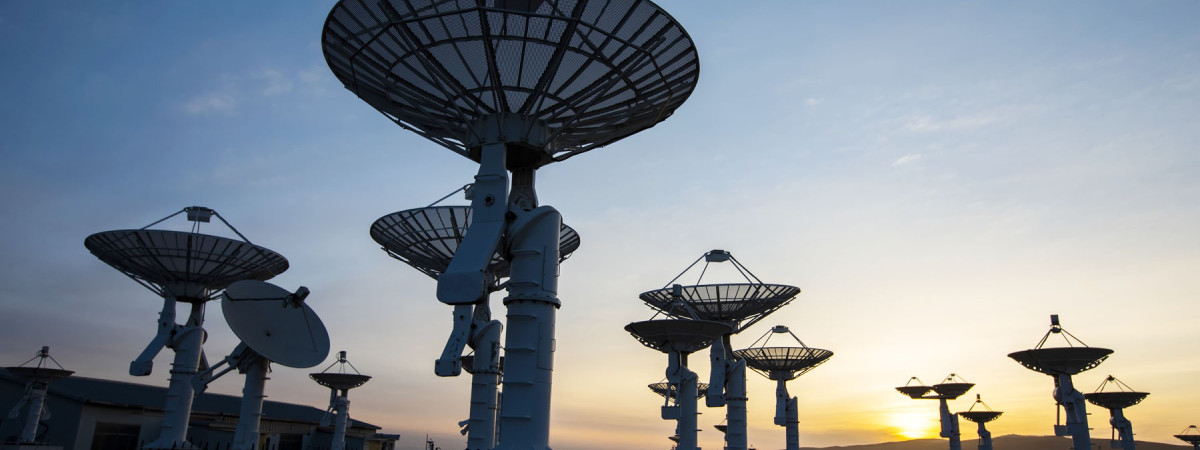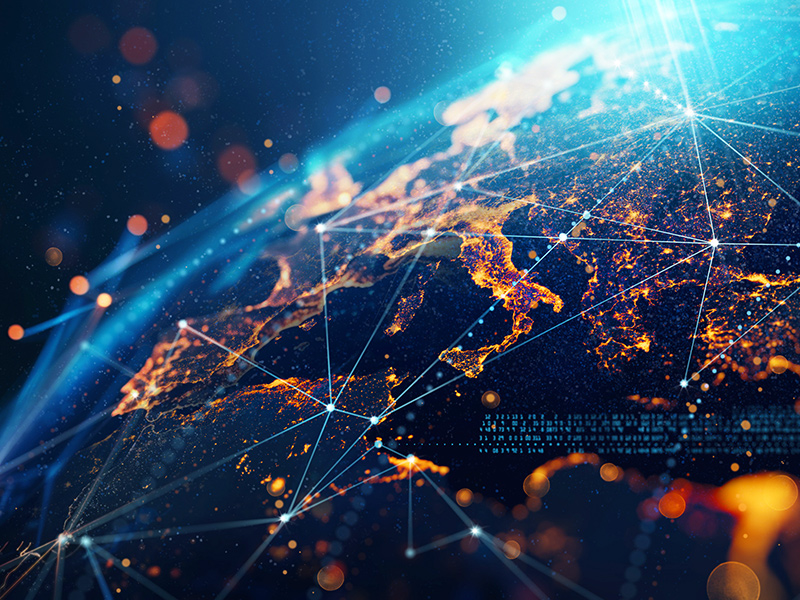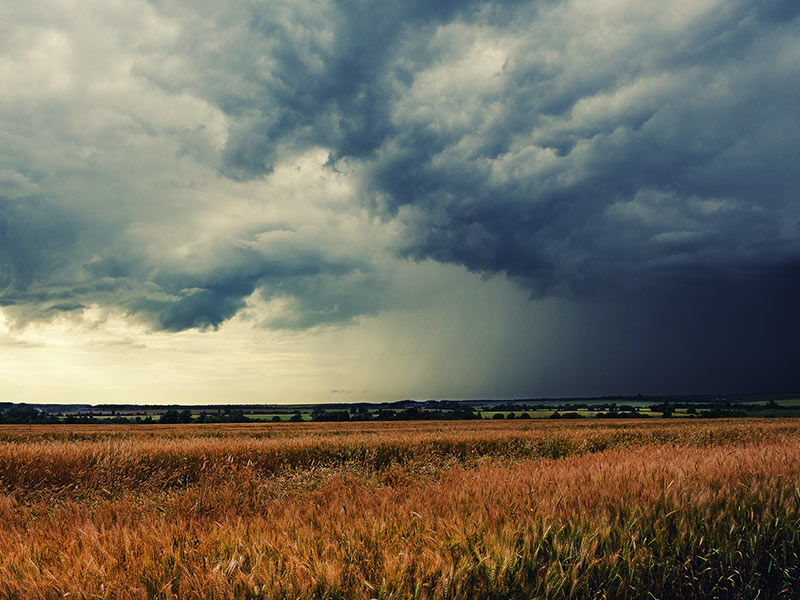
Photo by zhengzaishuru on iStock
Authors
-
Anna Iles
Former Associate Director, Transformation, BSR
Resilient strategies are built to stand up to the different shapes the future could take. One of the best tools for building such strategies is to consider possible scenarios—not just for the climate but for other world-shaping trends with highly uncertain outcomes. How might globalization look in five years’ time? How could regulators be dealing with AI? We can’t know, but we can use scenarios to hone our capacity to anticipate and prepare.
In this time-travel interview, we journey into a scenario where a strong retreat from economic globalization meets the wild west of artificial intelligence. And in this imagined future, we hear from Lorna León, the fictional Chief Sustainability Officer (CSO) of Antennae—an imaginary manufacturing company supplying electrical components for satellites. It’s 2030: what can Lorna see from her vantage point? How has the world changed, and what does it mean for companies like hers?
Future Company Profile: Antennae, Inc.
Antennae is a Germany-based manufacturer of satellite components. Founded in 1990, Antennae has grown to over $2B in sales with facilities in Europe, Asia and North America. The booming space industry has driven rapid growth for Antennae since 2015, with severe pressure on product performance, price, and development time for customers in the satellite communications and earth imaging industries. In recent years, Antennae’s customers and investors have become increasingly concerned about data privacy, the company’s ethics and labor practices in a secretive industry, and emerging risks from government interference in the space sector.
Thanks for talking to BSR, Lorna! What’s the world looking like in 2030?
The pandemic and its disruptions are largely forgotten—but the uneven recovery left scars. Supply chains have struggled to normalize, with shortages of everything from workers to parts to shipping containers. Employees have changed their expectations of work, increasingly questioning the how, where, what and why. Meanwhile, political leaders are ploughing up any common ground they used to tread: countries are pulling out of international regulations and restricting imports on hazy grounds. Alongside rising nationalism and geopolitical tensions, we have record-breaking climate-driven natural disasters hitting the headlines almost every week.
And what has changed for technology?
Technology has continued its rapid pace of evolution. Artificial Intelligence has created new products, taken hold in manufacturing floors, and is now driving the cars, flying the planes, launching the satellites, playing the all-seeing eye and the all-hearing ear, and generally telling us what to think – as well as what we’re thinking. It has changed the landscape of media altogether: human voices are increasingly lost in the limitless creative noise of generative AI, bringing huge challenges to authenticity and trust. Human interactions are not what they were...
And how is industry adapting?
Companies are investing heavily in electrification and automation – particularly in the transport sector. Designers for driverless cars are scrapping the rules: you now have cars on the road in certain smart cities without a ‘front’ or ‘back’—the seats pivot on top of the trunk, ‘reverse’ is a thing of the past!
Traditional airlines have struggled to plot their course (so to speak) in such an uncertain landscape. Consumer demand spikes and crashes as world leaders shake hands then ‘break up’ from one week to the next, opening and closing borders like park gates. Oil prices are all over the place. Then there’s the heat, which has brought down some airport infrastructure and caused massive flight delays.
The wealthy are all vying for tourist tickets into space, which is now literally the “wild west” as far as regulation goes—legally considered international waters according to treaties. But actually no one knows what’s going on up there! Too many operators, too much data, too few checks...
What are governments doing in this complex and charged landscape?
They are either unable or unwilling to manage artificial intelligence. Instead, they’ve mostly coopted it for national security agendas and to monitor everything of interest—from trade to people to sensitive data—with no coordination for data protection or standards.
As it’s impossible to know which companies are operating infrastructure and providing data analytics for which governments, we’re seeing these geopolitical stalemates in which countries are unable to locate the players behind apparent threats. Trust has really hit rock bottom—not only between governments but between citizens and state, and between citizens and corporates. It’s the age of conspiracy theories.
What does all this mean for companies?
With distrust in governments at a new high, and so much uncertainty in the regulatory landscape, companies have mostly withdrawn to home countries – with multinationals fracturing at the seams. The ever-increasing capabilities of AI and automated systems does a lot to keep labor costs low in higher-income countries—especially as migration, immigration, and even remote working across borders are heavily restricted. But poor transition planning has left a bigger mismatch between available jobs and jobseekers than automation accounts for, and that’s fueling unrest as inflation keeps pushing living costs to the sky.
And how is your company holding up?
We’ve carved out a niche in being a trusted, traceable provider to the ‘wild west’ of space. There’s no regulation to speak of, but ultimately procurers for satellite companies want the highest standards, because they have to minimize the risk of malfunction at all costs. We worked hard to build the sort of relationships and contracts that can deliver on their expectations and support interoperability across very different regimes.
That’s all we have time for today! You’ve been hearing from Lorna, the CSO of Antennae, sharing her perspective from 2030.
-
How would your company fare in such a future? What strategies could you put in place today to help prepare?
-
What other scenarios might we imagine? What if we saw a renewed push for economic globalization? Or strong regulation of AI?
In September, BSR is running a workshop for members in EETI to explore different future scenarios and examine their implications. Become a member and join us to find out what resilience means for industry and manufacturing.
Topics
Let’s talk about how BSR can help you to transform your business and achieve your sustainability goals.







